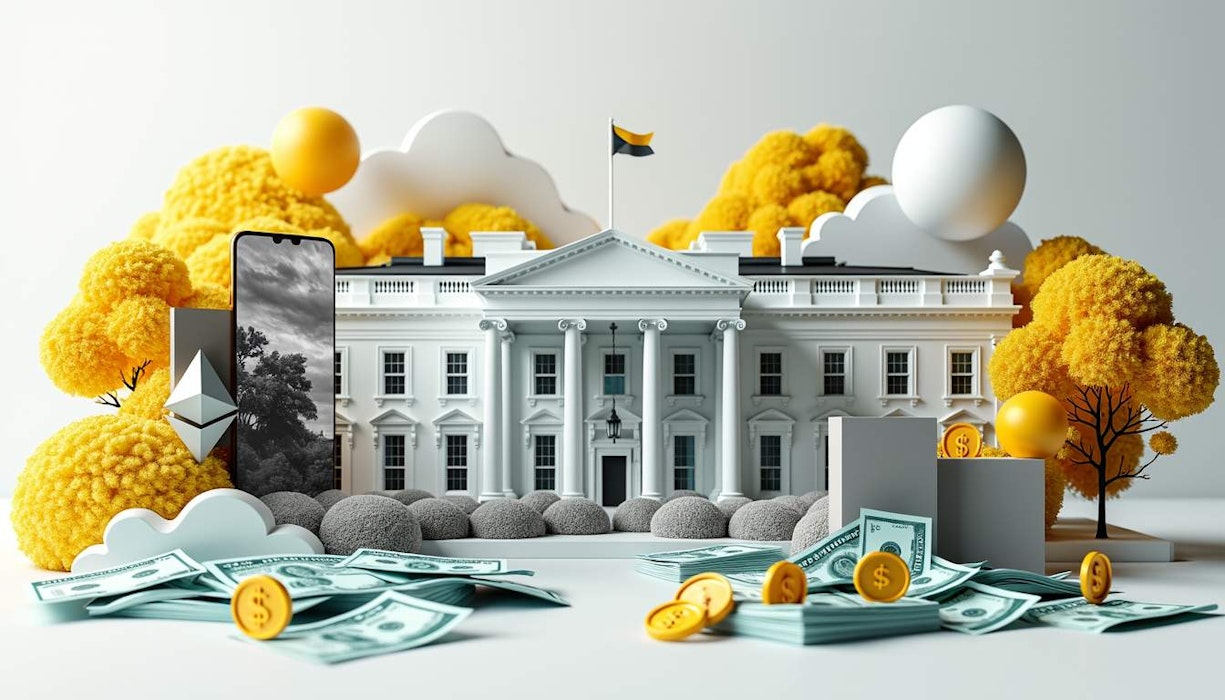What is the Proposed Crypto Role?
Q: What is the new White House crypto role being considered by President-elect Trump?
A: President-elect Trump is considering establishing a new White House position solely focused on cryptocurrency policy. This role would aim to enhance communication and coordination between the White House, Congress, and regulatory bodies like the SEC and CFTC, and would allow for the individual selected to be in a position to shape crypto policy at the highest levels.
How Would Trump's Policies Affect the Crypto Market?
Q: How might Trump's crypto-friendly policies influence the U.S. market?
A: Trump's administration is fervently pro-crypto, as evidenced by pledging to dismiss SEC Chair Gary Gensler and establish a presidential advisory council for cryptocurrency. These actions suggest a potential easing of regulatory constraints, which could result in the launch of new U.S. crypto trading platforms and increased usage in the market.
Q: What has been the market’s reaction to these announcements?
A: The digital asset market has been quick to react positively to Trump's proposals. For instance, Bitcoin has surged to around $97,500, contributing to a broader market gain of approximately $900 billion since November 2024, Trump's election. Companies like MicroStrategy have increased their Bitcoin purchases around the same time, potentially stoking further market confidence.
What Would This Mean for Small Businesses and Freelancers?
Q: How could a move toward deregulation benefit small businesses in Latin America?
A: A deregulated crypto market could provide several advantages for small businesses in Latin America. Cryptocurrency transactions are generally cheaper than those via traditional payment systems, making them more economical for international payments. They are also processed quickly, often in real-time, which could improve transaction speed. Moreover, cryptocurrencies offer access to financial services in regions with less banking infrastructure, and rely on transparent, immutable blockchain technology, which could decrease fraud risk.
Q: What would this mean for international freelancers?
A: A pro-crypto policy from the U.S. could increase financial inclusion for international freelancers and gig workers, particularly those in developing countries. Cryptocurrencies could offer lower-cost, faster transactions, addressing the high fees and delays often associated with cross-border payments. Enhanced security and privacy are also benefits, protecting users from identity theft and corrupt government actions. Tax legislation being discussed could potentially eliminate capital gains taxes on crypto transactions for small expenditures, making cryptocurrencies more usable for everyday needs.
What Challenges Does the Industry Face?
Q: What risks might arise from a deregulated crypto market?
A: While there are clear benefits to a deregulated crypto market, there are also considerable risks. The market's volatility can be a challenge, as it makes cryptocurrency values highly unpredictable, potentially harming small businesses and freelancers. The lack of a solid regulatory framework can lead to legal obstacles and compliance issues. Concerns about cybersecurity also linger, as cryptocurrency wallets and transactions are susceptible to hacking and cybercrime. Additionally, limited acceptance of cryptocurrencies as payment can hinder their practical use in cross-border transactions.
Q: Why might the policies favor corporations over individual retail investors?
A: The anticipated pro-crypto policies are likely to create favorable conditions for institutional players. The introduction of user-friendly crypto products, such as ETFs and blockchain savings accounts, could increase retail adoption. However, larger corporations and institutional investors may become the primary beneficiaries, given their greater financial resources and market clout. While individual investors, especially younger ones, may also gain from this increased access, the advantages may not be equally distributed.
How is Market Sentiment Affected?
Q: How might discussions about the White House crypto role have affected market sentiment?
A: The discussions about creating a White House crypto position appear to have bolstered market confidence. After Trump's pro-crypto announcements, Bitcoin and other cryptocurrencies have reached new heights. The digital asset market has experienced substantial growth, as seen with companies like MicroStrategy boosting their Bitcoin purchases. Critics warn that deregulation could increase retail investors' exposure to risks and market volatility, but overall, market sentiment remains optimistic.
Q: What are the broader implications of these proposed policies for the U.S. economy?
A: The proposed policies could have substantial implications for the U.S. economy by establishing a more favorable regulatory environment that attracts more businesses and investors to cryptocurrency. However, the risks associated with volatility, regulatory uncertainty, and cybersecurity threats will need to be managed to maintain a stable financial system. A White House crypto role could play a key part in guiding the regulatory landscape for cryptocurrency in the U.S. Going forward, it's essential to consider both the opportunities and risks presented by these developments.
